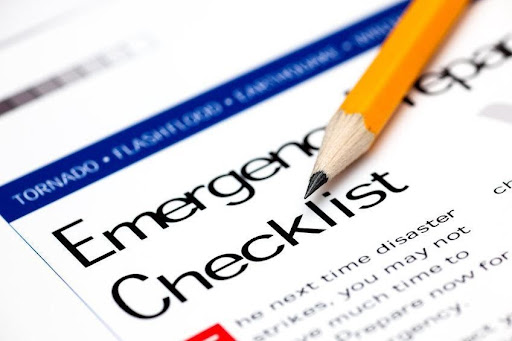
Five Essential Tips to Help Older Adults Prepare for Emergencies
As quick as the blink of an eye, an emergency can happen, putting an older adult in a dangerous situation that requires immediate action. However, most older adults are not adequately prepared for emergencies. According to the University of Michigan National Poll on Aging, 53 percent of respondents between the ages of 50 and 80 identified themselves as likely to experience an emergency or disaster in the next year. Among respondents, 82 percent had a seven-day supply of essential medications, 55 percent had enough food and water to last for seven days, and 40 percent had had an emergency plan conversation with their family.
Common emergencies that older adults face include sudden medical crises and natural disasters. It’s essential to be prepared for either scenario. Visiting Angels North Fort Myers encourages all older adults to prioritize their emergency plans. Here are five essential tips to help older adults prepare for emergencies.
Identify Likely Emergencies
Before you can make a plan, you need to identify potential emergencies that you may face. What natural disasters occur where you live? Floridians are vulnerable to hurricanes, tropical storms, tropical depressions, floods, wildfires, and tornadoes. In addition, consider the climate. Florida is often very hot and humid, leaving older adults vulnerable to heat-related illnesses. Also, consider your health and medical history. What chronic health conditions are you living with? What are your risk factors for heart attack or stroke? What’s your plan should you experience a fall? Thinking about all likely emergencies will ensure you have the right plan in place.
Gather Necessary Supplies
Next, begin to gather necessary supplies so that you’re prepared for natural disasters or other medical emergencies. The Centers for Disease Control and Prevention recommends having a three-day food and water supply for each person and/or pet. Assemble a first aid kit for your home and your car. Talk with your doctor about how you can safely stockpile prescription medications in case of an emergency. Also, discuss how you can get an emergency prescription refill, should you need one during a crisis. Other supplies to keep in case of an emergency include flashlights with extra batteries, a battery-operated radio, hand sanitizer, disinfecting wipes, non-prescription medications, a can opener, and a way to communicate to family (such as a one-time use phone or portable cell phone charger).
Create a Medication List
In addition to having an emergency stockpile of prescription medication, be prepared for emergencies by creating a medication list. Ask your doctor to review and update your current prescriptions. Include any over-the-counter medications, vitamins and/or supplements that you take regularly. Keep this list updated and place it in a central location in your home. Carry a copy with you in your purse or wallet. Keep a copy in the glove compartment of your car. Print a copy for your family to have on hand. If you have any allergies to medications or other critical medical conditions, consider purchasing and wearing a medical alert bracelet. In the event of an emergency, you and your family will have access to your current medications and can inform emergency responders, so they know how to proceed.
Sign Up to Receive Emergency Alerts
Most older adults rely on the news to receive information about impending natural disasters or other emergencies. However, if you aren’t watching network television or listening to the radio, you might not be aware of what’s happening until it’s too late. Consider signing up to receive emergency alerts. Many communities now can push out emergency notifications via text messages. Check your local government’s website for information about such a service and how to sign up.
Communicate an Emergency Plan with Your Family
The essential last step to being prepared for an emergency is communicating your emergency plan with your family. In the event of a natural disaster, do you plan to evacuate or stay? Where will you go? How will you get there? Identify a point-of-contact family member who can communicate the emergency to other family members. If you haven’t already named a power of attorney, do so immediately. Communicate with your family about where to find important legal documents and your wishes regarding advanced directives. Establish a check-in system, especially if you live alone. Remember, it’s better to over-communicate than to be caught off guard in the event of an emergency.
Visiting Angels North Fort Myers is here to be a part of your emergency plan. As one of America’s most trusted and respected at-home care providers, our mission is to help you remain where you feel happiest, safest, and most comfortable. Preparing for the unexpected is simply part of our professional training, so you can rest assured that you are in good hands. We’re more than just a little assistance at home. We are your safety net during difficult times. To learn more about us or get started with at-home care today, please get in touch with us by calling 239-226-1620.
